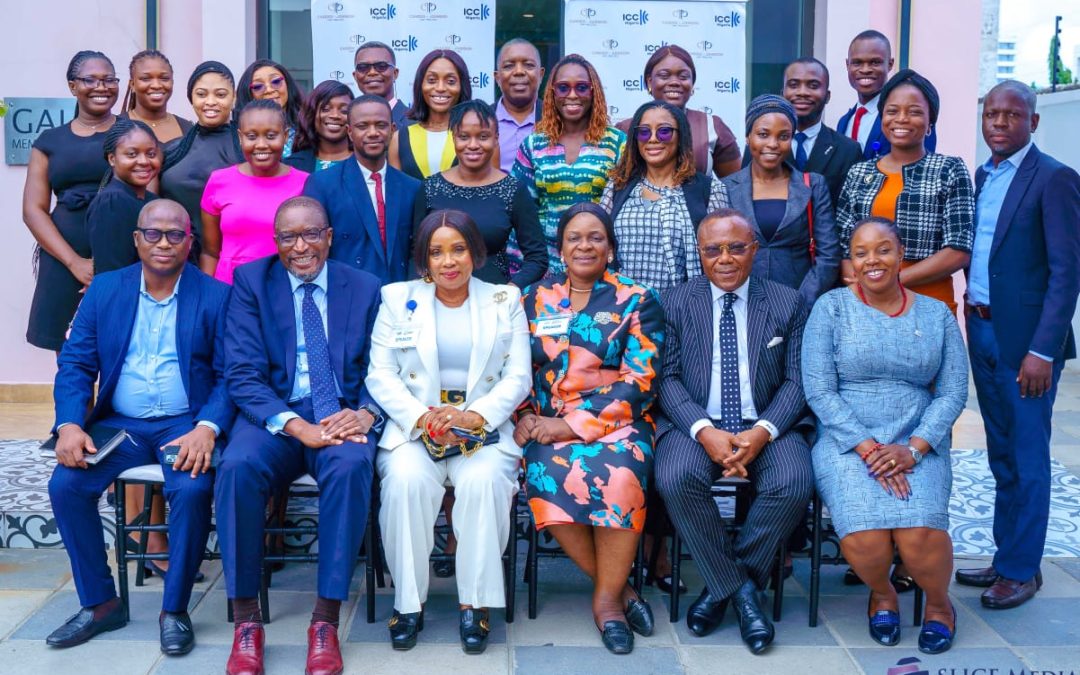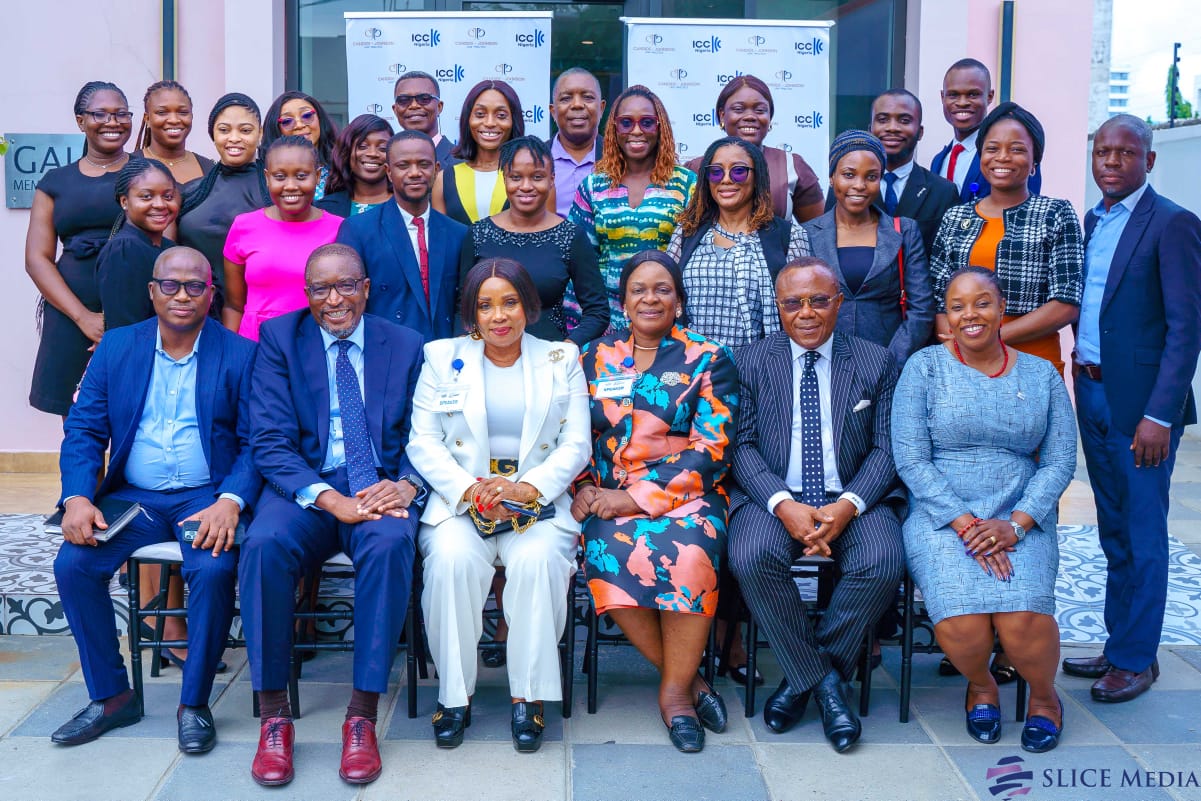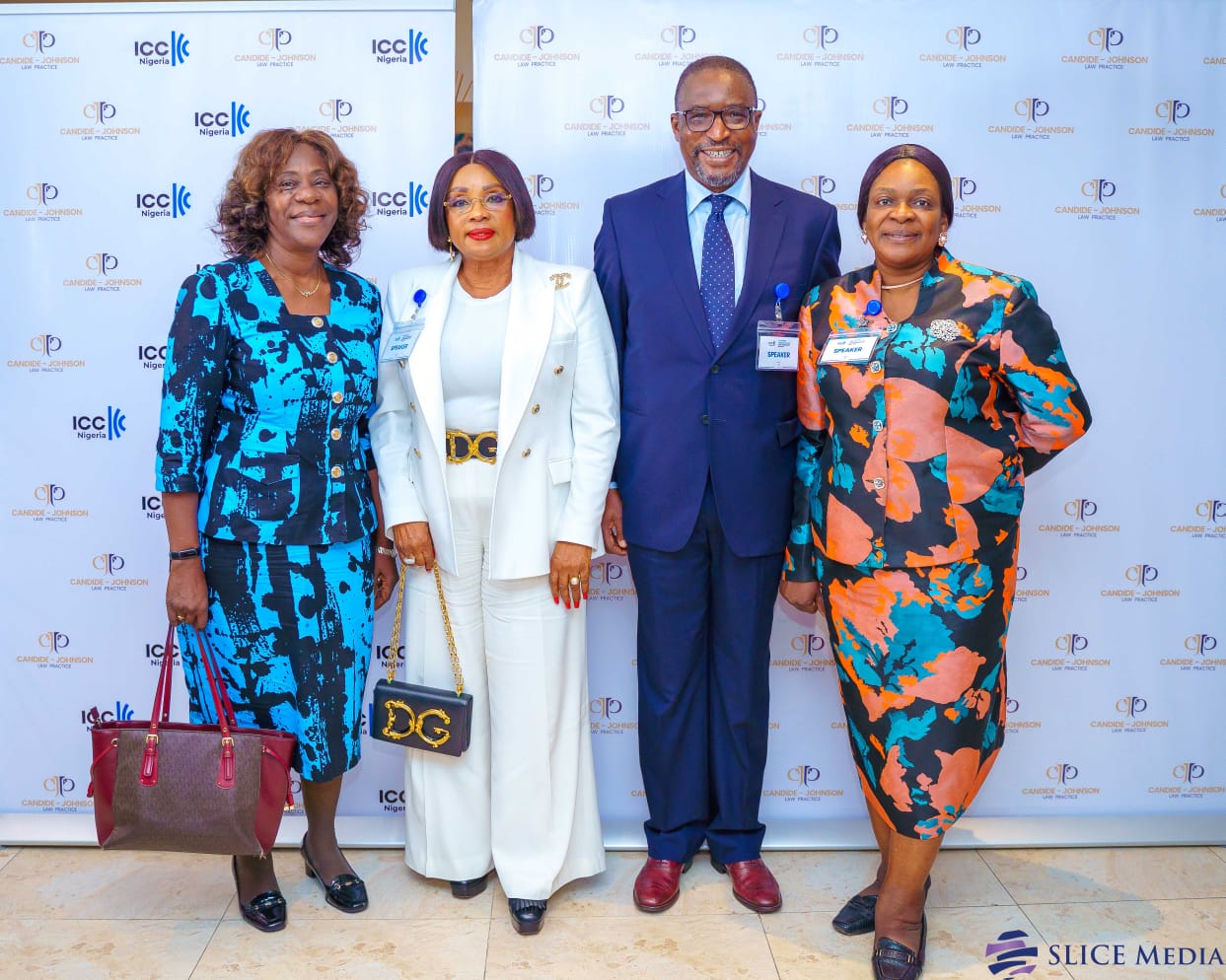
by Legalnaija | Jul 19, 2024 | ADR, Blawg

The ICC Nigeria Commission On Arbitration And ADR’s meeting on the 19th of July, 2024 in Lagos was hosted by the Candide Johnson Law Practice formerly known as Strachan Partners. The meeting was well attended by members of the Commission including its Chair, Mrs. Dorothy Ufot SAN, Mr. Yemi Candide – Johnson, Funke Adekoya SAN, Mr. Olisa Agbakoba SAN, Mrs Olubunmi Osuntuyi and a host of other members.
The Commission delivered its report on its membership; the 1st ICC Nigeria Arbitration Days Conference, the change of leadership at the ICC and ICC Nigeria; its Annual General Meeting as well as updates on the ICC Commission on Arbitration and ADR.
According to the report by the Chair of the Commission and the ICC Secretariat, ICC Nigeria continues to raise the Bar among its global peers, especially as many of its members continue to hold top positions at the International Chamber of Commerce. Also the Commission continues to champion Nigeria as an emerging Arbitration Hub especially as it boasts of several highly qualified arbitrators who have been appointed to very complex disputes in various sectors including oil and gas, construction and telecommunications.

Several members including the host Mr. Yemi Candide – Johnson SAN and Mr. Olisa Agbakoba SAN lauded the Commission for the great work its been doing. Mr. Candide – Johnson SAN also emphasized the essential role arbitration plays in resolving disputes and alleviating the pressure on the Courts.
The ICC Commission on Arbitration and ADR plays a pivotal role in advancing the field of dispute resolution. Let’s delve into how it continues to raise the bar:
- Thought Leadership: As a unique think tank within ICC Dispute Resolution Services, the Commission pools expertise and fosters awareness on practical and legal issues in arbitration and ADR. By staying at the forefront of developments, it contributes valuable insights to the global community.
- Research and Guidance: The Commission conducts in-depth research on legal, procedural, and practical aspects of arbitration and ADR. Its work results in concrete guidance, recommendations, and model clauses. These are often included in practical reports and guides published by the ICC, benefiting practitioners worldwide.
- Global Membership: With hundreds of members, the Commission comprises lawyers, in-house counsel, arbitrators, mediators, and experts in dispute resolution. Their diverse perspectives enrich the Commission’s work.
In summary, the ICC Nigeria Commission on Arbitration and ADR remains committed to excellence, shaping the future of dispute resolution through thought leadership and practical contributions.

by Legalnaija | Mar 6, 2023 | ADR
The mechanisms of Alternative Dispute Resolution in Nigeria’s judicial or legal system can be more relevant in reduction of courtroom congestion that has prevented expedition of natural justice, equity and fairness in our society. In the words of then Chief Justice of Nigeria, Justice Dahiru Musdapher, “the workload of the courts, noting that while 163 cases ( 78 judgements and 85 motions) were disposed of within the 2010-2011 legal year by the Supreme Court, there remained a staggering caseload of 1,149 civil appeals, 58 criminal appeals and 117 motions”. Based on this assertion, the ADR mechanisms is stirred up to expedite justice, equity and fairness in our commercial/ business sectors of the society just like other developed countries even, among some Africa countries today.
This can uplift our legal system when litigation lawyers encourage their client(s) to utilize any of these mechanisms in resolving business/ commercial disputes that might arise during or after contract rather than litigation. It is once said by the Chief Judge of River State, during the celebration of new legal year 2023 in the State that, Lawyers discourage their client(s) from using the ADR Multidoor courthouse and this has made the ADR mechanisms irrelevant today. He went further to plead with the litigation lawyers to encourage their client(s) to use the ADR system.
In ensuring the relevance of ADR mechanisms in our legal system, various Courts have encouraged all litigation lawyers to use the ADR system by making provisions in their various Courts (Civil Procedural Rules), for instance, Rule 1c of the High Court of Lagos State (Civil Procedure) Rule 2012 reiterates an “amicable resolution of disputes by use of Alternative Dispute Resolution (ADR) mechanism” and many other commercial organizations like Nigerian Communications Commission (NCC) etc and also ensure that, whenever litigation lawyers brought matters ought to be resolve through ADR, the court refer such matter(s) to the Multipurpose courtroom door or Multidoor courthouse for settlement between disputant parties which can be in form of AN AGREEMENT or AN AWARD. For example, the preamble to the High Court of Lagos State ( Civil Procedure) Rules 2012 empowers the Lagos State High Court to mandate parties in dispute to use ADR mechanisms or other dispute resolution options, to resolve their where court considers it appropriate to use such.
The ADR mechanisms will be relevant in our society, if our litigation lawyers ensure that, their client(s) have confidence in the process by accepting the outcome of the arbitral tribunal and the enforcement of agreement or award; increase the knowledge and awareness of their client(s) about the relevance of the ADR mechanisms; the creation of courts which will entertain and expedite matters from the arbitral tribunal and the quick passage of the National Alternative Dispute Resolution Regulatory Commission Bill 2011.
 Written by S. I Adeshina, ACArb
Written by S. I Adeshina, ACArb
A Pleader, Arbitrator, Human Rights Activist, Socialist, Writer and Political Analyst
Authorities
Abdulsalam O. A. Alternative Dispute Resolution & Arbitration in Nigeria: law, theory and practical: Princeton Publisher 2017
Lagos State High Court (Civil Procedure) Rule 2012





 Written by S. I Adeshina, ACArb
Written by S. I Adeshina, ACArb